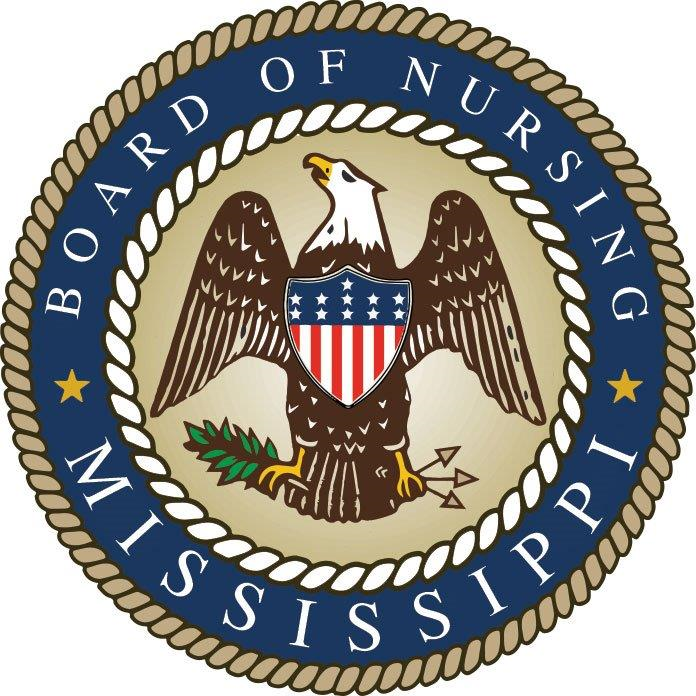How Nurses Can Cope With Mass Shootings
Mass shootings take an especially strong toll on healthcare workers. Learn how nurses can maintain their and their staff's mental well-being.
- News of mass shootings can be very upsetting for healthcare professionals, especially nurses who have cared for victims of mass violence before.
- Nurse supervisors and leaders can support staff who are experiencing distress.
- Coping techniques can help nurses maintain their well-being.
The year 2022 has been a traumatic one so far. Nurses are still dealing with COVID-19 and the resulting burnout and understaffing, the threat to patient care under Roe v. Wade, and now, the latest mass shootings in the United States. These include school shootings targeting children and shootings in medical centers.
For nurses, this news is not just upsetting but traumatizing. Mass shootings take a toll on everybody, especially healthcare professionals on the front lines like nurses. As a nurse, you regularly see and provide care for victims of violence, so you know firsthand what the physical impacts of shootings look like.
Many nurses have treated victims of violence, even mass shootings, so news of current tragedies can bring back those memories.
"These mass shootings do inflict another level of fear for nurses," registered nurse Brian Noggle says. "We already have to go to work in the trenches … we now have to worry about mentally ill individuals possibly shooting up our hospitals, churches, schools, and public settings."
On this page, we explain how nurse leaders can help support staff and how nurses can maintain their mental well-being in the face of ongoing mass shootings during these unsettling times.
Healthcare workers are frequently subjected to violent threats and physical violence. Almost half of all emergency physicians and 70% of emergency nurses have been physically assaulted on the job.
News of mass shootings in healthcare settings can trigger the 'that might have been me or my team' feelings of helplessness and dread. Similarly, parents or caregivers close to young children may feel additional trauma after school shootings.
As a nurse, you must consistently care for your own mental well-being while in a state of panic. Your role as a nurse is to provide care and stability to others facing the same uncertainties. Tom Kannon, a board-certified psychiatric nurse practitioner, points out that people often turn to nurses for support.
"Victims being treated look to nurses to provide safety and stability at a time when the world has been turned upside down," he says. "It is a huge responsibility and carries a weight with it."
How Nurse Supervisors and Nurse Leaders Can Support Staff
Nurse supervisors and leaders can help staff process and deal with news of mass shootings by:
- Providing room to talk and vent
- Encouraging and normalizing the use of employee assistance programs (EAPs) and other mental health resources
- Being advocates for nurse safety and protection from nursing workplace violence
There are additional ways nurse supervisors can support staff during the aftermath of shootings. First and foremost, Noggle emphasizes the importance of community and communication.
"When humans go through things together and can hear or see that others feel the same fear, confusion, or sadness, it creates a group dynamic," Noggle says. "The group is stronger than the individual, and we can build each other up."
Provide Guidance and Direction to Your Staff
Supervisors and leaders need to first provide guidance and direction to their team. Having a leader calmly facilitate collective action can help nurses feel supported during times of trial.
If you're supervising an emergency room or trauma unit, nurse supervisors should detail a plan for how the shift or unit is going to handle the incoming victims.
Watch Your Staff and Be Aware of Signs of Caregiver Stress
While not all nurses have cared for victims of mass shootings before, or are veterans who might develop post-traumatic stress disorder (PTSD), nurses with these backgrounds may be at greater risk. Both male and female nurses are at a higher risk of suicide than the general population, so your support can help save lives.
Check on your staff frequently, asking what they need and assessing for signs of caregiver nursing stress.
"Seeing and working with survivors may expose the nurses to things they've never seen before," Kannon says, "things that are gruesome and [that] can become overwhelming very quickly."
Address the Issue Openly
Acknowledge that it is only human to feel upset, numb, discouraged, angry, or even temporarily hopeless. Be familiar with the resources that your EAP offers and other benefits related to mental health. You can recommend them when needed and discuss them the same way that you might discuss other benefits. This can help reduce the potential stigma of seeking mental health support for nurses.
"The thing that makes me feel comfortable is when others, whether it be coworkers, colleagues, or management, get real with their feelings," Noggle says.
Encourage Self-Care
Consider encouraging staff to create personal wellness plans and buddy up on plans.
For example, you might brainstorm ideas and then set up sign-up sheets so that staff can help one another keep their plans, like eating healthy lunches or spending time outside during breaks.
Once the crisis is over, continue to provide ongoing support to your staff. Some nurses may develop acute stress reactions or PTSD after intense experiences. Consistently check in on your staff in the coming weeks and months, as processing traumatic events is not linear.
"Check in on those who were involved as they may seem fine for a little while but can start having issues in the following weeks and months," Kannon says.
Lead by Example
Keep demonstrating to nurses that you are there to support them through your actions. Understand factors on the job that might cause your team stress, and find ways to address them. Active supportive leadership can help fight nurse burnout.
Nurses can also work together to demand legislation that will help protect them from violence of all kinds. The American Nurses Association provides information on current legislation and advocacy.
10 Ways Nurses Can Cope With Mass Shootings
1. Take a Break From Social Media
Media, notably social media, is designed to keep users engaged. However, in times of crisis like mass shootings, often the healthiest thing to do is disengage from coverage of the crisis.
Resist the urge to keep reading or watching coverage, reading or listening to commentary, or checking for updates.
2. Ground Yourself in Your Power
Remind yourself that as a nurse you are one of the "helpers" that Mr. Rogers famously spoke of. You have a role in responding to disasters. Even if you momentarily feel helpless, you are actually accomplishing something in response to violence.
3. Seek Community
Talk with colleagues when you need to. This helps you to remember that you are not the only one feeling the way that you do about mass shootings.
Hospital chaplains can help staff and patients. Finding a therapist to provide you undivided attention and space to process is always encouraged.
4. Prioritize Caring for Yourself
Self-care practices for nurses can help you cope with the aftermath of mass shootings. Remember that you have to take care of yourself to take care of others.
"We're human, we can only do so much," Kannon says. "Nurses sometimes forget to allow themselves the grace of being human and not being perfect."
5. Meaning-Making
Meaning-making is one of the final stages of grief. As individuals reach acceptance, making meaning out of experiences can help individuals move forward.
Many find a sense of comfort and source of strength in a higher purpose, like spirituality, religion, community, or something bigger than yourself.
6. Process Through Journaling
Journaling can help you understand and respond to your emotions. Freestyle or stream-of-consciousness journaling is writing whatever comes to mind. Or you can write about a specific topic or in response to a prompt.
Journaling can be a powerful tool in processing intense experiences, such as mass shootings or treating trauma victims.
7. Give Yourself Permission to Feel
Self-compassion exercises for nurses can be valuable if you respond to stress by being too hard on yourself. Self-compassion teaches you to exercise the same compassion toward yourself that you bring to others.
"If you find that these feelings are causing disruptions to your life (e.g., sleep disruption, nightmares, irritability, avoidance of things that remind you of the event, feeling you can't enjoy anything), then that is when you need to reach out, even if only to talk with a colleague about how you feel," Kannon says.
8. Meditation and Mindfulness
Meditation can help reduce your stress response, especially if you find yourself brooding about events. Like many other self-help practices, there can be physical as well as emotional and mental benefits.
Mindfulness exercises can help you observe your responses, thoughts, and emotions from a safe and nonjudgmental perspective. This does not mean becoming numb. It's the ability to better understand your responses and manage them in a way that is healthy for you.
Suppose you find yourself reeling from the news of another shooting. In that case, mindfulness can help ground you in the present by encouraging you to notice your breathing, feel the ground under your feet, or be aware of the tension in your body.
9. Decompress With an Animal
Time with pets is good for you at any time, but especially when dealing with complex emotions. Pets live in the moment and offer unconditional affection.
10. Get Involved in Your Community
Noggle advises nurses feeling stressed by mass shootings to get involved with charity or volunteer work.
This can look like holding space for others sharing in the trauma after a shooting, joining a committee or organization that supports victims and their families, or donating to causes that support your core values.
"Nothing cleanses the soul more and gives one a sense of purpose like being selfless and helping others," Noggle says.
These can help on top of general stress management approaches:
- Exercising if you're able, especially if you spend a lot of time sitting at a desk
- Practicing regular mindfulness to still your mind or racing thoughts
- Eating a healthy diet
- Keeping to a regular sleep schedule and getting enough sleep
- Spending time in nature
- Connecting with loved ones
If you take up one of these approaches but are not able to keep it up, do not let that discourage you from trying again. If you spent time meditating for five days but then forgot or could not get into the mindset one day, that is not a failure. Instead, it is evidence that you can do it for five days and can aim for five more.
Meet Our Contributors

Tom Kannon, DNP, PMHNP-BC, Assistant Dean of Online Graduate Nursing and Assistant Professor at Regis College
Tom Kannon is an assistant professor and assistant dean for graduate online nursing at Regis College. He was previously a preceptor for the Uniformed Services University of Health Sciences and served as adjunct faculty at Shenandoah University. Kannon comes to Regis College after serving more than 28 years in the United States Navy.

Brian Noggle, Psychologist, RN, Cofounder of Frankie Dean
Brian Noggle has two bachelor's degrees: one in psychology and one in nursing. He is an RN in California and has spent 10 years in the emergency room plus five years working in homeopathic/naturopathic medicine.
